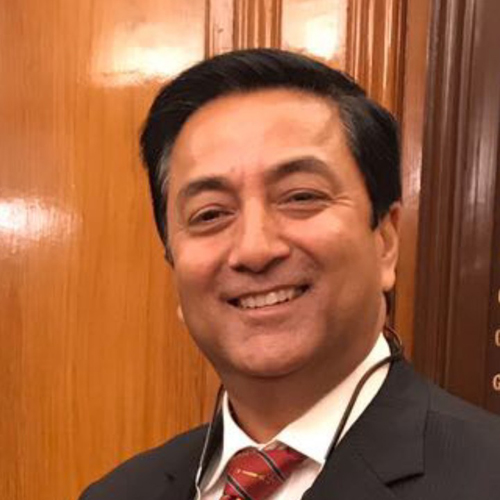Opinion
Nepalis deserve better
In recent years, public pressure has mounted globally for more honest and accountable governments, and Nepal is no different
Binoj Basnyat
The signing of the Comprehensive Peace Agreement in 2006 between the Maoists and the Seven Party Alliance ended the 10-year armed conflict in which more than 13,000 Nepalis were killed, 1,300 went missing and 100,000-150,000 were internally displaced. More than 10 years have passed since then, but the country is still waiting for the verdict from the Truth and Reconciliation Commission (TRC) and the Commission of Investigation on Enforced Disappeared Persons (CIEDP) for justice and reparation. During this time, Nepal has seen 10 heads of government, two heads of state, two Constituent Assembly elections in 2008 and 2013, proclamation of the constitution in 2015, and local, federal and provincial elections in 2017 besides intermittent violence resulting in dozens of deaths.
The political parties have not given up their old ways, and power tussles, ideological polarisation, competition and differences are the order of the day which threatens to get out of hand and lead to fragmentation of parties and familiar political uncertainty. The Madhes-based parties have not given up their demand for an amendment to the constitution, and the southern plains are likely to be gripped by violence that may even encourage secessionist movements.
The rise of Chinese interest and India’s lack of trust in the political leaders and their steps and course of action on Nepal surely has geo-political and geo-economic significance. The centuries-old cultural and traditional attachment with India and its assistance in a variety of fields is praiseworthy, and the question now is how you characterise China’s interest and the interests of extra regional powers.
New world order
Nepal will have to enter a new phase in international affairs with a new regional order as regional powers and the situation in South Asia are shifting. Political inconveniences and rivalries will impact the alignment and foreign policy required for the country, while the numerous alterations are beyond the control of regional powers. However, Nepal’s dynamic self-motivation will possibly be shaped by regimented policies encompassing all South Asian countries. Another landlocked Asian country, Mongolia, is moving towards economic independence by striking cooperative agreements with both its neighbours Russia and China, and other countries like the US and some multinationals.
Frequent changes in government have led to unclear economic policies. The economy is being shaped more for the benefit of the political party in power than for the country’s overall development even after the promulgation of the constitution. Economic growth has slowed bringing about unemployment and forcing 1,500 youths to leave the country daily as migrant workers. The 17 Sustainable Development Goals with 169 targets are to be achieved by 2030, and Nepal is hoping to graduate from a least developed country to a developing country by 2022 even as a new governance system is being implemented which is confusing.
The major political parties have a common agenda for prosperity and economic growth, which is focused on good governance and raising the per capita income to $5,000 and creating massive job opportunities. The slow inflow of foreign direct investment (FDI) into the country is due to unclear policies and ill-advised decisions, like scrapping the contract for the construction of the Budhi Gandaki Hydropower Project given to China Gezhouba Group Corporation. The federal system of governance is an expensive system, but a clear and precise launching and utilisation of resources with less hassles can be an opportunity.
Regional connectivity, job opportunities, industrialisation, energy shortages, development of infrastructure, agriculture, tourism, modern communication technology, development of banking, social security, quality education and health facilities for all, water supply, sanitation and basic needs have not received enough attention due to lack of coordination and corrupt practices. So, a proposal from Nepal for economic cooperation with regional powers China and India should be welcomed.
Stem internal conflicts
Social transformation and political awareness for freedom, democracy and human rights has been taking hold in Nepal which contains diverse cultures. It is essential to spread unity, harmony and mutual respect both in politics and in society. A significant change in internal and external dynamics is transforming the country into a plural, democratic, multi-ethnic, federal and secular state. Ethnic division, religious radicalisation and political polarisation will unquestionably invite instability. This is an issue that has both domestic and regional consequences. Separation, radicalisation and polarisation are marginalising minority groups that will clearly lead to disharmony and invite conflict.
Unless addressed in time, corruption and misuse of authority are likely to expand with the establishment of three tiers of government which means more power centres and more bureaucratic hurdles. The business community will face the brunt and the people will be hit hard by rising inflation. Civil society and interest groups will find lawful ways to force the government to address the ill practices. Or they may take to the streets like Dr Govinda KC has done to bring about changes.
In recent years, public pressure has mounted for a more honest and accountable government in many countries. Governments and international establishments are progressively recognising the role of corruption in fueling violent upheavals worldwide. The day when international actors and local activists will be working in complementary ways for accountability and stability is not far away. In Guatemala, international partners established an International Commission against Immunity which investigated organised crime and corruption to strengthen the rule of law even though political leaders tried to weaken it.
Nepal needs to deal with political uncertainty, economic shortcomings, diplomatic immaturity and the preservation of religious, cultural and age-old traditions. If this is not done, state and non-state actors will find an opportunity to engage in illicit activities, corruption and misgovernance. After the proclamation of the constitution and the completion of the elections to three tiers of government, the people assumed Nepal would become one happy, peaceful and prosperous economy. The trends and state of affairs will offer numerous challenges in the coming half-decade, and any mishandling will fracture Nepal. The Nepali people want equitable distribution of income, job creation and economic growth.
Basnyat is a retired Army Major General, holds an M-Phil degree and is a political and security analyst




 16.33°C Kathmandu
16.33°C Kathmandu










